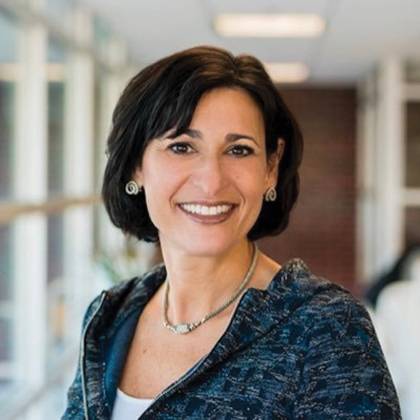When President Biden's transition team announced in December that Rochelle P. Walensky, Med '95, '98 (PGF), was slated to become the new director of the Centers for Disease Control and Prevention, the medical and public health communities universally cheered the choice.

Image caption: Rochelle Walensky
Image credit: Photography courtesy of Massachusetts General Hospital
Walensky has a reputation for sage and insightful research, and as the chief of the Division of Infectious Diseases at Massachusetts General Hospital, she had been on the front lines of testing and treating deadly viruses for decades. After receiving her Doctor of Medicine from Johns Hopkins School of Medicine, Walensky spent the next three years training at Johns Hopkins Hospital—a crucial time for HIV and AIDS research and treatment. She credits Hopkins for setting her on the path to studying infectious diseases and, ultimately, to her work at the CDC. Walensky also credits Hopkins for her family life: She met her husband, Loren Walensky, Med '97 (MD/PhD), '98 (PGF), while they were both studying at Hopkins. They now have three children.
Since joining the CDC, Walensky has become one of the key voices of authority for the American people on managing the COVID-19 pandemic, from understanding the latest masking guidance to championing the efficacy of the available vaccines. She has also spoken about how the virus has laid bare many structural inequities in the United States, leading her to announce in April that racism is a public health issue that the CDC must address during the pandemic and beyond.
"What we who work in the field of infectious diseases know is that they affect the vulnerable," Walensky said. "We saw it with HIV. We see it with tuberculosis. COVID came to this country from airplanes, it came from cruise ships. It came from people who had resources, and it rapidly went to people who didn't. … We have to address racism as being a serious public health threat because if we're going to improve the public health of this nation, we have to recognize that people's health is integrally tied to where they work, where they live, how they commute, where they worship. Oftentimes that does not intersect with access to health care." For a longer conversation with Walensky, visit hub.jhu.edu/2021/04/30/rochelle-walensky-interview/.







